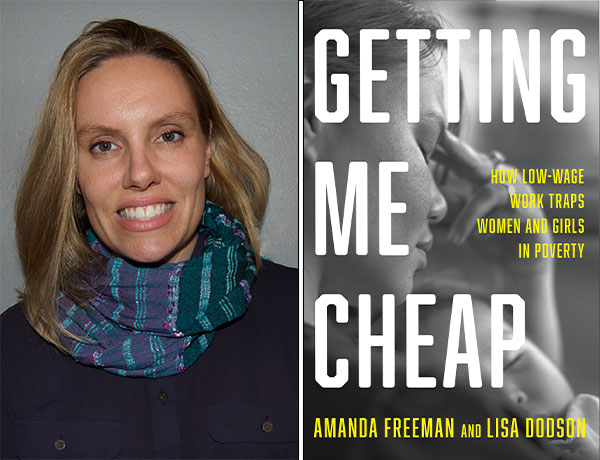Professor Publishes Book on Low-Wage Women Workers

A sociology professor at the University of Hartford is highlighting the difficult realities of low-wage women workers in a newly published book that has been a decade in the making.
Amanda Freeman, assistant professor of sociology and criminal justice in the College of Arts and Sciences, has just released “Getting Me Cheap: How Low-Wage Work Traps Women and Girls in Poverty,” published by The New Press in NYC and co-authored with Lisa Dodson, research professor emerita at Boston College.
A draft of the book was close to being completed before the pandemic, but required new additions as the COVID-19 crisis especially underscored struggles faced by workers earning a lower-tier income.
“It’s easy to rely on the labor of low-wage women and have it remain invisible,” Freeman said. “We asked the women we interviewed about work/family conflict, and they said, ‘What are you talking about? Of course they conflict.’ They just think that’s a way of life. There are unrealistic expectations for them as workers and also intensive parenting expectations for them at the same time, and they can’t meet both.”
Freeman and Dodson interviewed women who worked in healthcare and the hotel industry, and as home care aides, nannies, delivery drivers, and others, and examined wages, a lack of worker protections, childcare costs, choices they make to accommodate family needs, attempts to go back to college, and how the cycle can repeat itself.
But the book offers solutions, too: awareness, a recognition of how you’re treating workers in these positions, advocating for such workers in your own company, and universal childcare, among others.
Freeman hopes the book will cause readers to recognize the challenges of low-wage women workers in their lives, and is glad her students have been able to learn about that as the book developed. At UHart, her classes have gone in-depth on inequality, the social construction of motherhood, and sociology of the family.
“Students like to also be part of whatever I’m doing or studying,” Freeman says.